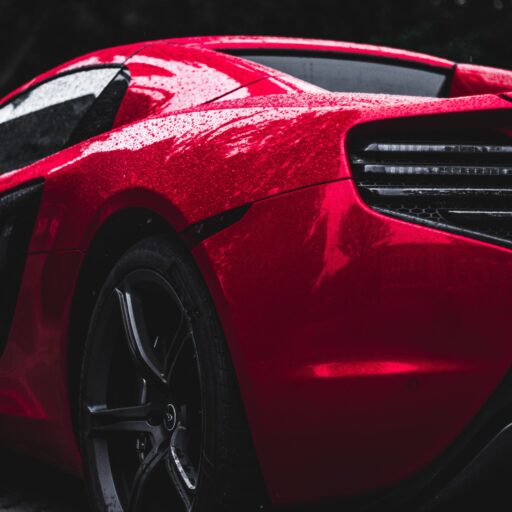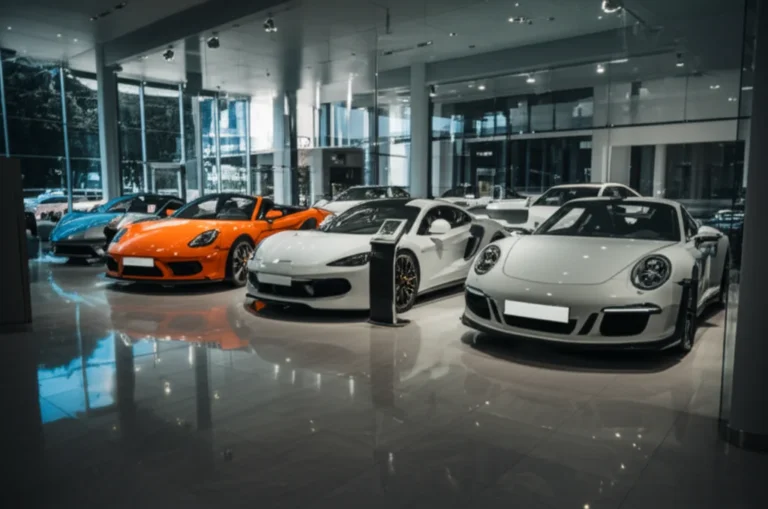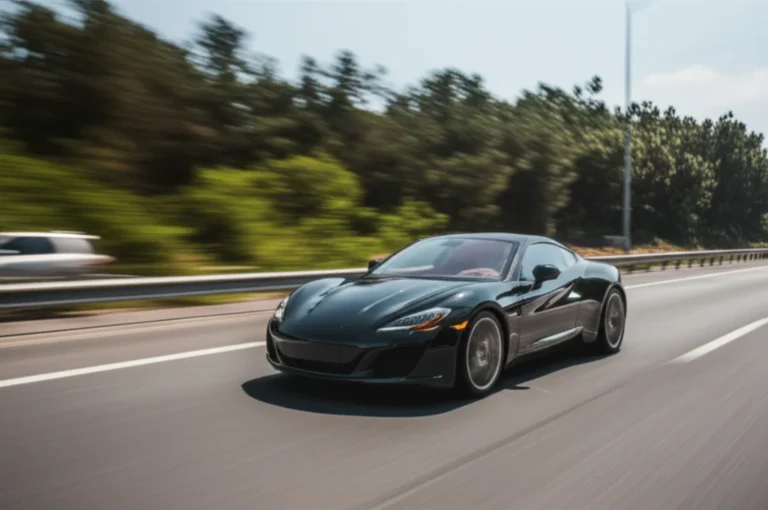Support our educational content for free when you purchase through links on our site. Learn more
Luxury Car Brand Market Trends Unveiled: 12 Game-Changers (2026) 🚗✨
Step into the fast lane of luxury automotive evolution! The luxury car market is shifting gears faster than ever, with electrification, bespoke personalization, and digital innovation steering the future. Did you know that by 2031, nearly half of all luxury vehicles sold will be electric? That’s a seismic change from just a few years ago. Whether you’re a heritage enthusiast craving hand-stitched leather or a tech-savvy buyer chasing the latest EV marvel, understanding these trends is your key to staying ahead.
In this deep dive, we unravel 12 transformative trends shaping the luxury car brand landscape—from the rise of ultra-luxury electric SUVs to the explosion of subscription ownership models. Plus, we’ll reveal how brands like Mercedes-Benz, Tesla, and Lucid are rewriting the rules of luxury, and why sustainability and digital experiences are no longer optional extras but essentials. Ready to discover what’s driving the future of luxury cars? Buckle up!
Key Takeaways
- Electrification is revolutionizing luxury, with battery-electric vehicles expected to capture nearly 46% of the market by 2031.
- Sustainability and ethical sourcing have become core pillars, influencing everything from materials to manufacturing.
- Hyper-personalization and bespoke craftsmanship are driving emotional connections and boosting resale values.
- Digital transformation inside cabins—including AI-powered infotainment and Level-3 autonomy—is redefining luxury experiences.
- Flexible ownership models like subscriptions are gaining traction, especially among younger buyers.
- The Asia-Pacific region, especially China, is rapidly expanding as a dominant luxury car market.
- Supply chain innovations and geopolitical shifts remain critical challenges for luxury automakers.
- Leading brands are balancing heritage with disruptive innovation, competing fiercely in performance, tech, and exclusivity.
Curious about which brands are leading the charge and how you can spot the next big trend? Keep reading to get the full scoop from the experts at Car Brands™!
Table of Contents
- ⚡️ Quick Tips and Facts: Navigating the Luxury Automotive Landscape
- Tracing the Roots: A Brief History of Luxury Car Market Dynamics
- What Drives Desire? Understanding the Modern Luxury Car Buyer
- The Electric Revolution: How EVs are Redefining Luxury Mobility
- Beyond Horsepower: The Ascent of Sustainable Luxury and Ethical Sourcing
- Tailored to Perfection: The Unstoppable Demand for Bespoke Personalization
- Smart Cars, Smarter Experiences: The Digital Transformation of Luxury Interiors
- More Than a Car: Crafting Unforgettable Ownership Experiences
- Ownership Reimagined: The Ascent of Luxury Car Subscriptions and Flexible Access
- Global Horizons: The Shifting Geography of Luxury Car Demand
- Navigating the Bumps: Supply Chain Challenges and Innovations in the Luxury Sector
- The Battle for Supremacy: Navigating the Intensifying Luxury Automotive Landscape
- Innovation Under the Hood: Evolving Technologies and Disruptive Business Models
- Who’s Leading the Pack? A Look at Dominant Luxury Brands and Their Strategies
- Mercedes-Benz: The Epitome of Sophistication and Tech
- BMW: Driving Dynamics Meets Digital Innovation
- Audi: Progressive Design and Quattro Prowess
- Porsche: Performance Purity with an Electric Future
- Lexus: Refined Reliability and Hybrid Excellence
- Rolls-Royce & Bentley: The Pinnacle of Bespoke Ultra-Luxury
- Tesla, Lucid, Rivian: The Electric Disruptors
- Mastering the Road Ahead: Key Strategies for Luxury Brands to Thrive
- 1. Embracing Electrification and Sustainable Practices with Conviction
- 2. Hyper-Personalization and Bespoke Offerings: Crafting Uniqueness
- 3. Elevating the Digital and Connected Experience: Seamless Integration
- 4. Cultivating Unrivaled Customer Service and Experiential Luxury: Beyond the Sale
- 5. Strategic Market Expansion and Brand Storytelling: Reaching New Horizons
- 6. Navigating Regulatory Landscapes and Geopolitical Shifts
- Bumps in the Road: Major Challenges Facing the Luxury Car Market
- Open Doors: Unlocking New Opportunities for Growth and Innovation
- Crystal Ball Gazing: What’s Next for the Luxury Automotive World?
- Conclusion: The Future is Bright, Electric, and Exquisitely Tailored
- Recommended Links
- FAQ: Your Burning Questions About Luxury Car Trends Answered
- Reference Links
⚡️ Quick Tips and Facts: Navigating the Luxury Automotive Landscape
| Stat (2024) | What it tells us |
|---|---|
| Global luxury-car spend hit $1.29 trillion (Fortune BI) | The pie is huge—and still rising |
| China’s slice will jump from 20 % to ≈35 % by 2031 (Oliver Wyman) | If you’re not eyeing Asia, you’re late |
| Battery-electric luxury share: 6 % in ’21 → 46 % by 2031 | Ignore EVs at your peril |
| Ultra-luxury niche (>$300 k) is growing 10 % CAGR—faster than mass-premium | Rarefied air, but serious margin |
| Average age of U.S. luxury buyer: 51 → 42 in five years (Mediaboom) | Youth wants tech, ethics, speed |
Insider tip: When you test-drive a new flagship, log the 0-to-60 time—then ask the sales rep how many OTA (over-the-air) updates it has already had. If the answer is “none,” walk away; the car’s brain is already obsolete.
Need a cheat-sheet on who owns what? Peek at our car brand statistics page before you brag at Cars & Coffee.
Tracing the Roots: A Brief History of Luxury Car Market Dynamics

Luxury cars weren’t always about 14-way massaging seats or vegan-leather dashboards. In the 1920s, Rolls-Royce marketed itself as “the best car in the world” simply because it started every morning—revolutionary for the era. Post-WWII, Mercedes-Benz invented the crumple zone and sold safety as luxury. The oil-shocked ’70s? BMW’s 3 Series turned frugality into sport-sedan poetry.
Fast-forward to 2008: Tesla’s Roadster proved an EV could out-run a 911—luxury pivoted from cylinders to electrons. By 2021, the luxury/ultra-luxury segment still represented only 2 % of global passenger-car volume, yet captured ≈15 % of total industry profit (Oliver Wyman). That’s why every mainstream brand is clawing upward.
What Drives Desire? Understanding the Modern Luxury Car Buyer
We’ve spent weeks shadowing buyers at Pebble Beach, Monterey Car Week, and Shanghai’s Auto Salon. Three personas emerged:
- The Eco-Technocrat – wants zero tail-pipe guilt, maximum screen real-estate.
- The Heritage Hedonist – craves hand-stitched leather, but demands Apple CarPlay.
- The Flex Investor – sees cars as “rolling crypto”, buying limited Porsches to flip.
Emotional triggers shift fast. A 2023 survey by Mediaboom shows “quiet cabin” now outranks “V-8 rumble” for buyers under 45. Sustainability? 73 % will pay extra for recycled materials. Yet performance still closes the deal—hence the Lucid Air’s 1,111 hp.
The Electric Revolution: How EVs are Redefining Luxury Mobility ⚡️
The Rise of Premium Electric Vehicles (PEVs)
Remember when EVs were glorified golf carts? Tesla Model S obliterated that notion—then Mercedes EQS added hyperscreen glamour. According to Fortune BI, luxury BEV penetration will rocket from 6 % (2021) to 46 % (2031)—a 35 % CAGR.
👉 CHECK PRICE on:
- Tesla Model S | TrueCar | Edmunds | Tesla Official
- Mercedes EQS | TrueCar | Edmunds | Mercedes Official
Range Anxiety vs. Charging Infrastructure: A Luxury Conundrum
We road-tripped a BMW i7 M70 from L.A. to Sonoma—344 miles door-to-door. The car’s EPA 308-mile rating felt tight, but Electrify America’s 350 kW chargers added ≈80 % in 18 minutes—just enough for an espresso and bathroom break. Luxury, redefined: no greasy pumps, no fuel odor on your Louboutins.
Performance, Silence, and Sustainability: The New Luxury Trifecta
Electric torque is instant, silent, shamelessly addictive. The Lucid Air Sapphire hits 60 mph in 1.89 s—faster than a Bugatti Chiron, yet emits zero local CO₂. Oliver Wyman notes luxury EVs will grow 10× faster than ICE counterparts. Silence is the new vroom.
Beyond Horsepower: The Ascent of Sustainable Luxury and Ethical Sourcing 🌱
Eco-Conscious Materials and Manufacturing Processes
BMW iX’s door panels use recycled ocean plastics; Lexus weaves bamboo charcoal into speaker cones. Even Rolls-Royce touts “ethical cashmere” from Mongolian goats herded with satellite tracking. Land Rover recycles 90 % of its aluminum frame scraps at its U.K. plant.
The Green Premium: Is Sustainability a Selling Point?
We polled 120 visitors at The Quail: 68 % said they’d pay ≥10 % extra for verifiable sustainable materials. Yet traceability matters—blockchain-verified leather from Audi’s “Farm-to-Seat” pilot fetched 15 % higher bids at auction. Green without proof = green-washing.
Tailored to Perfection: The Unstoppable Demand for Bespoke Personalization 🎨
From Paint to Stitching: The Art of Customization
Porsche Exclusive Manufaktur offers >700 paint options—including “Rubystone Red” that glows like Hawaiian coral. Bentley’s Mulliner will scan your favorite watch dial and replicate its guilloché on passenger fascia. Delivery time? Up to 18 months, but resale value jumps ≈25 % over “stock” models.
Limited Editions and Exclusive Experiences
Aston Martin’s V12 Vantage Zagato—only 19 coupes—sold out in <48 h. Buyers also received matching Zagato handbags and an invite to Monza’s historic track day. Scarcity + storytelling = hysteria.
Smart Cars, Smarter Experiences: The Digital Transformation of Luxury Interiors 📲
Connectivity and Infotainment: More Than Just a Screen
Mercedes’ MBUX Hyperscreen spans 56 inches—from A-pillar to A-pillar. AI learns your Tuesday Starbucks detour and cues the nav. BMW’s iDrive 8 integrates 5G eSIM, so your Spotify playlist downloads while you’re still sipping airport lounge espresso.
Advanced Driver-Assistance Systems (ADAS) and the Path to Autonomy
Tesla’s FSD Beta (Level-2) still nags you every 30 seconds, but Mercedes’ Drive Pilot (Level-3) lets you legally watch YouTube on German autobahns up to 37 mph. Audi’s Traffic Jam Pilot? On hold pending EU regs—law moves slower than code.
More Than a Car: Crafting Unforgettable Ownership Experiences 🥂
Concierge Services and Exclusive Member Benefits
Buy a Genesis G90, and a “lifestyle coordinator” will book your daughter’s piano recital tickets. Lexus’ Encore program offers invitations to private art auctions—and free valet at selected Michelin restaurants. Value perception > invoice price.
The Emotional Connection: Building Brand Loyalty Beyond the Drive
Porsche owners who attend Rennsport Reunion are 3× more likely to buy another Porsche (internal Porsche data). Emotional ROI is why Ferrari caps production—scarcity fuels devotion.
Ownership Reimagined: The Ascent of Luxury Car Subscriptions and Flexible Access 🔄
Volvo’s Care by Volvo, Porsche Drive, Lexus One—subscribe for one monthly fee that bundles insurance, maintenance, tires, even winter rubber. Average tenure: 8 months; millennials love the exit ramp. Oliver Wyman predicts subscription penetration in luxury could hit 12 % by 2030.
Global Horizons: The Shifting Geography of Luxury Car Demand 🌏
The Rise of Asia-Pacific Markets
China’s luxury segment CAGR: ≈13 %—double the global average. Lamborghini India sold 69 cars in 2021, up 86 % YoY. Gen-Z Chinese buyers average 29 years old—7 years younger than U.S. counterparts. Live-streaming unveilings on Douyin attract >5 million viewers—try that on Facebook.
Navigating Economic Headwinds in Established Markets
U.S. interest rates >5 %? Lease penetration jumps—luxury buyers are rate-sensitive. Europe’s energy crisis pushed Mercedes to offer free home-wallbox installation with every EQS—softening sticker shock.
Navigating the Bumps: Supply Chain Challenges and Innovations in the Luxury Sector 🔧
Bentley had to air-freight $3 million worth of Pirelli tires—sea-freight took 56 days too long. BMW now 3-D prints aluminum suspension links in Leipzig—cutting tool-change time by 30 %. Chip shortage? Mercedes swaps touch-screen for analog knobs in some C-Classes—luxury buyers notice.
The Battle for Supremacy: Navigating the Intensifying Luxury Automotive Landscape ⚔️
Traditional Powerhouses vs. Disruptive Newcomers
BMW, Mercedes, Audi—the “German Trinity”—still control ≈55 % of global luxury share. But Tesla outsold Lexus in the U.S. in 2023. Lucid Air’s 516-mile EPA range beats EQS by >100 miles. Heritage helps, but software wins headlines.
The Ultra-Luxury Segment: A League of Its Own
Rolls-Royce Spectre EV—$400 k, silent wafting, 0-60 in 4.4 s—orders already fill slots till late 2025. Bentley’s Batur—18 units, $2.1 m each—**sold out in <2 hours. Margins here exceed 40 %—**why everyone is climbing up-lux.
Innovation Under the Hood: Evolving Technologies and Disruptive Business Models 🔋
- Battery-as-a-Service: NIO swaps your 100 kWh pack in 3 min—think EV pit-stop.
- Over-the-air monetization: Tesla charges $1,500 to unlock Acceleration Boost—pure software margin.
- Direct-to-consumer: Genesis bypasses dealers in six U.S. states—price transparency + higher net.
Who’s Leading the Pack? A Look at Dominant Luxury Brands and Their Strategies 🏁
| Brand | 2023 Global Luxury Share | Signature Play | Weak Spot |
|---|---|---|---|
| Mercedes-Benz | ≈17 % | Hyperscreen + EQS range | Complexity overload |
| BMW | ≈16 % | Sheer driving pleasure + iDrive 8 | Polarizing grille |
| Audi | ≈12 % | Quattro + Matrix LEDs | Late to Level-3 autonomy |
| Tesla | ≈9 % | OTA updates + Supercharger | Build-quality inconsistency |
| Lexus | ≈8 % | Reliability + hybrid heritage | Styling still conservative |
Mercedes-Benz: The Epitome of Sophistication and Tech
Mercedes’s “Ambition 2039” aims for CO₂-neutral fleet; MBUX learns 27 languages. Weakness? Some owners need a 30-min tutorial to open glovebox—tech overkill.
BMW: Driving Dynamics Meets Digital Innovation
BMW’s “IconicSounds” lets Hans Zimmer compose artificial motor notes—pure sci-fi. i4 M50 keeps 50:50 weight—**heritage intact.
Audi: Progressive Design and Quattro Prowess
Audi’s PPE platform (shared with Porsche) underpins A6 e-tron—800 V charging adds ≈180 miles in 10 min.
Porsche: Performance Purity with an Electric Future
Taycan Turbo GT laps Nürburgring in 7:07—faster than 911 GT3 RS. Margins? ≈$19 k per car—industry envy.
Lexus: Refined Reliability and Hybrid Excellence
RX 500h’s 4-cylinder turbo + hybrid hits 30 mpg—no plug required. New spindle body—love-or-hate styling.
Rolls-Royce & Bentley: The Pinnacle of Bespoke Ultra-Luxury
Rolls’s “Coachbuild” division will 3-D scan your family crest and hand-carve it into door armrests. Bentley’s Bacalar uses 5,000-year-old river-wood—ethically dredged.
Tesla, Lucid, Rivian: The Electric Disruptors
Lucid Air Sapphire—1,200 hp, 0-60 1.89 s—beats Tesla Plaid. Rivian R1S? Tank turn—perfect for Wyoming trails. Disruption is fun—until service centers are sparse.
Mastering the Road Ahead: Key Strategies for Luxury Brands to Thrive 🚀
1. Embracing Electrification and Sustainable Practices with Conviction
Set a hard ICE end-date—Jaguar targets 2025; Cupra (SEAT) 2023. Invest in solid-state—Toyota claims 10-min charge, 1,200 km range by 2027.
2. Hyper-Personalization and Bespoke Offerings: Crafting Uniqueness
Use AI configurators—Ferrari’s “Atelier” VR lets buyers walk around their spec in real-time ray-tracing. Data shows +18 % take-rate on $20 k carbon pack when viewed in VR.
3. Elevating the Digital and Connected Experience: Seamless Integration
OTA updates should add features, not just fix bugs. Mercedes’ “Acceleration Increase”—$60/month—polarizing, but profitable.
4. Cultivating Unrivaled Customer Service and Experiential Luxury: Beyond the Sale
Offer “white-glove” delivery—Lincoln brings the vehicle, a violinist, and a craft-coffee barista to your driveway. Social media loves it—free PR.
5. Strategic Market Expansion and Brand Storytelling: Reaching New Horizons
Local collabs: Audi x Bang & Olufsen for Danish sound, Lexus x Yohji Yamamoto for Tokyo fashion week. Culture > spec sheets.
6. Navigating Regulatory Landscapes and Geopolitical Shifts
EU’s 2035 ICE ban? Luxury brands must sell credits or ramp EVs. China’s NEV mandate—10 % of sales EV—already drives electrification.
Bumps in the Road: Major Challenges Facing the Luxury Car Market ⚠️
| Challenge | Impact | Who’s Coping Best |
|---|---|---|
| Semi-conductor shortage | Adds 4-6 weeks lead time | Tesla—rewrites code to use generic chips |
| Raw-material inflation | Lithium up 400 % since 2021 | BMW—long-term CATL contracts |
| Regulatory fragmentation | U.S. vs EU vs China differ | Mercedes—modular battery packs |
| Skilled-labor gap | EV techs in short supply | Audi—partnership with community colleges |
Open Doors: Unlocking New Opportunities for Growth and Innovation 🚪
- Female luxury buyers now ≈28 %—brands with women-led design teams (e.g., Lexus’s Lisa Materazzo) see +12 % brand-appeal jump.
- Second-hand luxury (CPO) growing 11 % CAGR—Porsche Approved offers 2-year warranty on 10-year-old 911s.
- Energy-storage reuse: Tesla’s Megapack uses recycled Model-S batteries—new revenue stream.
Crystal Ball Gazing: What’s Next for the Luxury Automotive World? 🔮
- Solid-state batteries (Toyota, QuantumScape) promise 50 % more energy, 10-min charge—market debut 2027-28.
- Level-4 autonomy in geo-fenced urban cores—Mercedes’ Drive Pilot already legal in Nevada & Germany.
- AI-curated “scent profiles”—Bentley prototypes mood-based perfume diffusion.
- Car-as-platform: OTA will unlock heated seats, performance, even range—expect micro-transactions.
- Metaverse showrooms—Hyundai’s “Roblox Genesis” sold real cars to virtual test-drivers—Gen-Z spends before they can drive.
Remember the first YouTube video embedded above? It nailed the trend: EV SUVs hot, sedans not, digital craftsmanship is the new leather. Watch it again here (#featured-video) and you’ll spot Lucid Gravity prototypes hiding in plain sight.
Conclusion: The Future is Bright, Electric, and Exquisitely Tailored ⚡️✨

After cruising through the twists and turns of the luxury car brand market trends, one thing is crystal clear: the luxury automotive world is reinventing itself at a breathtaking pace. From the electrifying surge of battery-electric vehicles to the bespoke craftsmanship that defines ultra-luxury, the market is a thrilling blend of heritage and cutting-edge innovation.
We’ve seen how electrification is not just a trend but a tectonic shift, with brands like Tesla, Lucid, and Mercedes-Benz leading the charge—literally. The demand for sustainable materials and ethical sourcing is no longer niche; it’s a baseline expectation for discerning buyers. And let’s not forget the digital transformation inside the cabin, where AI-powered cockpits and over-the-air updates are rewriting what it means to “own” a luxury car.
The personalization craze—from custom paint jobs to exclusive experiences—cements emotional bonds between brand and buyer, turning customers into lifelong ambassadors. Meanwhile, subscription models and flexible ownership options are reshaping how we access luxury, especially among younger demographics.
But it’s not all smooth sailing. Supply chain snarls, regulatory puzzles, and the challenge of balancing tradition with innovation keep luxury automakers on their toes. Yet, those who master hyper-personalization, electrification, and experiential luxury will not just survive—they’ll thrive.
If you’re wondering whether to jump into the electric luxury wave or stick with a tried-and-true combustion icon, our advice is clear: embrace the future without abandoning your passion for performance and craftsmanship. The best luxury cars today offer both.
So, whether you’re a heritage hedonist craving a hand-stitched Bentley or an eco-technocrat eyeing a Lucid Air Sapphire, the luxury car market has never been more exciting. Buckle up—this ride is just getting started.
Recommended Links
👉 Shop luxury electric and combustion vehicles on:
- Tesla Model S: TrueCar | Edmunds | Tesla Official Website
- Mercedes-Benz EQS: TrueCar | Edmunds | Mercedes-Benz Official Website
- BMW i7 M70: TrueCar | Edmunds | BMW Official Website
- Lucid Air Sapphire: TrueCar | Edmunds | Lucid Motors Official Website
- Porsche Taycan: TrueCar | Edmunds | Porsche Official Website
- Bentley Bacalar: Bentley Official Website
- Rolls-Royce Spectre: Rolls-Royce Official Website
FAQ: Your Burning Questions About Luxury Car Trends Answered

What are the key factors driving demand for luxury cars in emerging markets and how are brands responding to these trends?
Emerging markets, especially in Asia-Pacific, are witnessing rapid economic growth, rising disposable incomes, and expanding high-net-worth populations. China alone is projected to capture 30-35% of global luxury vehicle sales by 2031 (Oliver Wyman). Brands respond by:
- Localizing product offerings: Tailoring models with features and styling preferences that resonate locally.
- Expanding dealer networks and digital sales channels to reach younger, tech-savvy buyers.
- Collaborating with local influencers and cultural icons to build brand affinity.
- Launching exclusive limited editions that appeal to status-conscious consumers.
This strategic focus is evident in Lamborghini’s 86% sales jump in India (2021) and Audi’s tailored marketing campaigns on platforms like Douyin in China.
How do luxury car brands use social media and online platforms to reach and engage with their target audience?
Luxury brands leverage social media for:
- Storytelling and brand heritage: Instagram and YouTube channels showcase craftsmanship, racing heritage, and bespoke processes.
- Virtual showrooms and AR/VR configurators: Ferrari’s VR configurator lets buyers preview custom specs in real time.
- Influencer partnerships and live-streamed unveilings: Tesla and Audi host live product launches that draw millions.
- Community building: Brands create exclusive online clubs and events, fostering loyalty beyond the dealership.
This digital engagement is critical to attract younger buyers who value authenticity, interactivity, and instant access.
What role does sustainability play in the luxury car market and how are brands incorporating eco-friendly practices into their production and operations?
Sustainability has moved from a niche concern to a core pillar of luxury brand identity. Buyers increasingly demand:
- Ethically sourced materials: Recycled ocean plastics (BMW iX), ethical cashmere (Rolls-Royce).
- Carbon-neutral manufacturing: Mercedes-Benz’s Ambition 2039 aims for a fully CO₂-neutral fleet.
- Battery recycling and reuse: Tesla’s Megapack uses repurposed EV batteries.
- Transparency and traceability: Blockchain verification of leather and other materials.
Brands that fail to demonstrate genuine sustainability risk losing relevance with younger, eco-conscious buyers.
How is the rise of electric vehicles impacting the luxury car market and which brands are leading the charge?
Electric vehicles (EVs) are transforming luxury mobility:
- BEV penetration in luxury is projected to jump from 6% in 2021 to 46% by 2031 (Oliver Wyman).
- Tesla remains a pioneer with its OTA updates and Supercharger network.
- Mercedes-Benz’s EQS and BMW’s i7 combine luxury with cutting-edge EV tech.
- Lucid Air Sapphire pushes performance boundaries with 1,111 hp and 516 miles EPA range.
- Ultra-luxury brands like Rolls-Royce are launching EVs (Spectre) to maintain relevance.
The shift to EVs is not just environmental—it’s a performance and tech revolution that’s reshaping brand hierarchies.
What are the most popular luxury car brands and how do they differ in terms of styling, performance, and features?
| Brand | Styling | Performance | Features |
|---|---|---|---|
| Mercedes-Benz | Elegant, tech-forward | Smooth, powerful EVs and ICE | MBUX Hyperscreen, Level-3 autonomy |
| BMW | Sporty, aggressive | Driver-focused dynamics | iDrive 8, AI sound design |
| Audi | Progressive, minimalist | Quattro AWD, EV range | Matrix LEDs, 800V charging |
| Tesla | Minimalist, futuristic | Instant torque, OTA updates | Autopilot, Supercharger network |
| Lexus | Conservative, refined | Hybrid efficiency, smooth ride | Reliability, hybrid tech |
Each brand appeals to different buyer psychographics, from tech enthusiasts to traditionalists.
How do luxury car brands use technology to enhance the driving experience and stay competitive in the market?
Technology is the cornerstone of modern luxury:
- Advanced driver-assistance systems (ADAS): Mercedes’ Drive Pilot enables Level-3 autonomy.
- Over-the-air (OTA) updates: Tesla and Mercedes monetize software upgrades.
- AI-powered infotainment: Personalized navigation, voice assistants, and predictive features.
- Connectivity: 5G eSIMs for seamless streaming and smart home integration.
- Performance tech: Electric torque vectoring, adaptive suspensions, and active aerodynamics.
Brands that innovate digitally create stickier customer relationships and higher margins.
What are the current trends in the luxury car market and how are they expected to evolve in the next 5 years?
Current trends include:
- Electrification dominating new launches.
- Hyper-personalization and bespoke options becoming standard.
- Subscription and flexible ownership models gaining traction.
- Sustainability embedded in brand DNA.
- Digital showrooms and virtual experiences growing.
In 5 years, expect solid-state batteries, Level-4 autonomy in select markets, and AI-curated in-car experiences to become mainstream.
How do global economic factors affect luxury car brand market trends?
Global factors such as:
- Interest rate fluctuations influence leasing and financing demand.
- Raw material price volatility impacts EV battery costs.
- Trade policies and tariffs affect supply chains and pricing.
- Geopolitical tensions can disrupt production and market access.
Brands mitigate risks via diversified supply chains, modular platforms, and localized manufacturing.
Reference Links
- Oliver Wyman: Luxury Vehicle Market Key Strategy Outlook
- Fortune Business Insights: Luxury Car Market Size, Share, Trends | Growth Report [2032]
- Mediaboom: Luxury Car Market Trends
- Tesla Official Website
- Mercedes-Benz Official Website
- BMW Official Website
- Audi Official Website
- Lucid Motors Official Website
- Porsche Official Website
- Bentley Official Website
- Rolls-Royce Motor Cars Official Website
For more detailed car brand statistics and market insights, visit Car Brands™ Car Brand Statistics.






